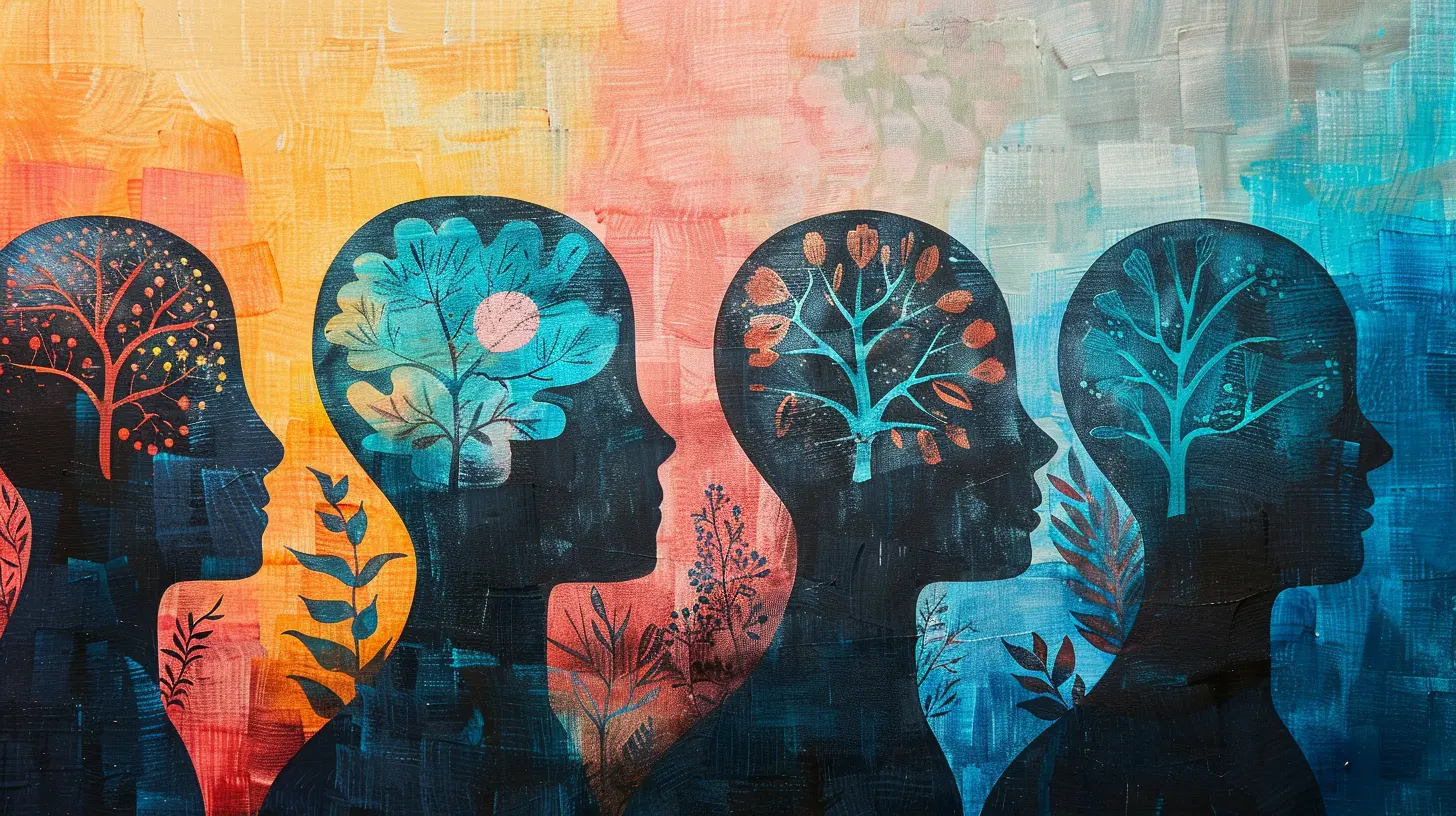The Connection Between Emotional Support and Mental Health
1 October 2025
Let’s be real—life can be an emotional rollercoaster. One minute you're on cloud nine, and the next, you're spiraling into self-doubt, anxiety, or even outright sadness. But amidst all the chaos, there’s one thing that quietly yet powerfully keeps us grounded: emotional support.
In today’s fast-paced world, we often underestimate the value of simply having someone to lean on. Whether it's a friend, a family member, or even a therapist, emotional support plays a massive role in keeping our mental health in check. So, let’s take a deep dive into how emotional support and mental health are connected—and why this bond is stronger than you might think.
What Is Emotional Support, Really?
You might be thinking, “Isn’t emotional support just someone being nice to me?” Not quite. Emotional support goes deeper.At its core, emotional support is about having people who:
- Listen without judgment
- Validate your feelings
- Offer empathy and understanding
- Provide encouragement, especially during tough times
It’s not always about solving your problems. Sometimes it's just about someone sitting next to you, handing you tissues, and saying, “I’m here.”
Think of emotional support like Wi-Fi for your soul. You won’t always see it, but when it’s strong, everything functions better.
Why Emotional Support Matters for Mental Health
We all have a mental “gas tank,” and emotional support is like fuel. It helps us manage stress, build resilience, and stay mentally balanced. Here’s how:1. Reduces Stress and Anxiety
Ever feel like you’re drowning in worries, but the second you talk to someone, you can breathe a little easier? That’s not just in your head—well, actually, it is, but you know what I mean.Emotional support calms the mind. When you know someone has your back, the world doesn’t seem as scary. Sharing your worries out loud takes away their power, making them feel more manageable.
2. Helps Navigate Life Transitions
Breakups, job losses, moving to a new city—life throws curveballs. During these transitions, emotional support becomes your cushion. It gives you a soft place to land and helps you feel less alone.3. Boosts Self-Esteem
When people consistently show up for you, you start thinking, “Hey, maybe I am worth it.” That boost in self-worth can be a game-changer, especially for those struggling with depression or low self-esteem.4. Encourages Healthy Coping
Let’s face it: when you’re struggling emotionally and no one’s around, it's easy to fall into destructive habits—drinking too much, isolating yourself, or doomscrolling late into the night.Supportive people remind you there are healthier ways to cope. Sometimes, just a phone call can steer you toward going for a walk rather than numbing out.
Types of Emotional Support
Not all support looks the same. Let’s break down the different shades of emotional support:A. Verbal Support
This includes saying things like:- "I believe in you."
- "That sounds really tough; I’m here for you."
- "You’ve got this."
Words matter. They can uplift or spread positivity like wildfire.
B. Non-Verbal Support
Sometimes, nothing needs to be said. A hug, a gentle touch on the shoulder, or even just sitting silently together speaks volumes. These small gestures scream, "You’re not alone."C. Practical Support
It may sound boring, but someone helping you clean your apartment or bringing you soup when you’re down is incredibly emotionally validating. It says, "You matter, and I care."D. Informational Support
Sharing useful advice or relevant information, when asked for, can be emotionally empowering too—as long as it doesn’t turn into the dreaded “fix-it mode.”
Emotional Support in Mental Health Recovery
For individuals dealing with mental health issues, whether it's depression, anxiety, PTSD, or something else, emotional support isn’t just helpful—it’s often essential.Therapy and Professional Support
Let’s give credit where it’s due. Therapists are the emotional architects of the mental health world. They provide a safe space, validate your experiences, and teach you how to support yourself emotionally.Peer Support Communities
There’s something incredibly healing about talking to someone who “gets it.” Online forums, support groups, and community centers offer peer-based emotional support that can be deeply impactful.Sometimes a simple “me too” can be more healing than any prescription.
The Science Behind Emotional Support and Mental Health
Need proof that emotional support actually works? Good news—science backs this up.Numerous studies have shown that people with strong emotional support systems:
- Have lower levels of cortisol (the stress hormone)
- Experience fewer symptoms of depression and anxiety
- Recover faster from illness or trauma
- Have better physical health overall
One famous study, the Harvard Study of Adult Development, followed participants for over 75 years. The conclusion? Good relationships keep us healthier and happier than wealth or fame ever could.
Yep, emotional support literally adds years to your life.
The Dangers of Lacking Emotional Support
Okay, we’ve talked about the perks—now let’s be real about the risks.When emotional support is MIA, mental health takes a hit. You might experience:
- Increased feelings of loneliness and isolation
- Higher risk of depression and anxiety
- Low self-worth
- Difficulty coping with everyday stress
Lack of emotional connection can feel like walking through a storm without an umbrella—you don’t just get soaked; you get exhausted.
Can You Cultivate Emotional Support?
Absolutely. Emotional support isn’t just something you luck into—it’s something you can build.1. Ask For It
This might feel awkward, especially if you’re not used to opening up. But people can't read your mind. Sometimes simply saying, “Hey, I’m having a rough time—can we talk?” is enough.2. Be That Person for Others
Support is a two-way street. The more you offer it, the more likely you are to receive it. Be the friend who listens. It’s amazing how karma works in the world of emotion.3. Set Boundaries
Not all relationships are emotionally supportive. If someone constantly drains you or invalidates your feelings, it's okay to distance yourself. You deserve support, not stress.4. Seek Professional Help
There's no shame in needing extra help. In fact, reaching out to a mental health professional might be the most emotionally supportive thing you can do for yourself.Emotional Support in a Digital World
Let’s face it—we’re more connected than ever, but somehow lonelier too.Social media is a double-edged sword. It can provide support, but it can also make you feel left out. So use those platforms with caution. Real connection comes from meaningful interactions, not just likes and emojis.
Texting a friend just to say, “Thinking about you today, hope you’re okay,” can mean more than a thousand follows.
Final Thoughts: Emotional Support Isn’t Optional—It’s Essential
Here’s the thing: You’re human. You need connection. You need to feel seen, heard, and understood. Without emotional support, we’re just trying to survive; with it, we thrive.So whether you’re the one offering a shoulder or the one leaning on it—remember, emotional support is the heartbeat of mental health. It doesn’t take much, but it means everything.
And if you’re struggling right now? That’s okay. Reach out. Speak up. There are people who care—you just have to let them in.
all images in this post were generated using AI tools
Category:
Emotional SupportAuthor:

Jenna Richardson
Discussion
rate this article
1 comments
Katherine Sharpe
Emotional support acts as a vital buffer against mental health challenges, fostering resilience and promoting healing. It highlights the profound interconnectedness of human experiences, reminding us that vulnerability can be transformed into strength through compassionate connections.
October 10, 2025 at 4:08 AM

Jenna Richardson
Thank you for your insightful comment! I completely agree that emotional support is crucial for resilience and healing, emphasizing the power of our connections in facing mental health challenges.


